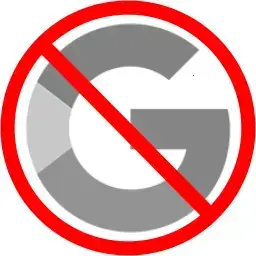Long story short: Everyone should consider downloading NeoStumbler on their phones and help collect degoogled geolocation data from the places they travel to.
Degoogled geolocation data?!
A big problem with degoogling is positioning services. Whenever your device doesn’t have a GPS signal but wants to know your position, it collects information about the wifi, cellular, and bluetooth networks around you. It then looks this up against a database of networks and their location, and returns to you your approximate position.
This has traditionally been crowd-sourced by Google for a closed database for them to use and abuse. Mozilla created and abandoned their own service a while back, as they tend to do. Their data was not anonymous enough for it to live on in open source, and for a while there was no real open source option out there. All location services would pretty much depend on Google. Thankfully, this is not the case any more.
Enter beaconDB!
A proper open source alternative has finally emerged in the form of beacondb (@beacondb@mapstodon.space), which currently contains location data for more than 75 million wifi networks and almost 4 million cellular towers, most of which in Europe and the US. This database allows degoogled devices to find their location in the world without relying on a Google service. It is still in its early days, but some open systems already use it by default.
How can you help?
Contributing to beaconDB is incredibly easy. The tl;dr on top of this post summarizes it, but here’s a more detailed overview:
- Install the open source app NeoStumbler
- Open the app and set it up. It’s a good idea to take a look at the settings. I have enabled movement detection (helps save battery on most devices) and passive data collection. I also enabled an option to send reports with less metadata, further increasing privacy.
- Press “play” in the app. You can also add a “wireless scanning” button to the sliding drawer menu in Android to make this option more accessible. I generally keep scanning on at all times as I don’t find it to drain the battery much, but of course it’s mostly useful when moving around in new areas.
- Walk around, live your life.
And, of course: Let people know about it! Contributions from people outside of Europe and the US would be particularly welcome, but it’s the early stages of the project and contributions are needed everywhere. Also feel free to cross-post (or boost!) this to anywhere you’d see fit.
Since the end of June I have collected information about more than 150 000 wifi networks and more than 10 000 cellular networks. It’s fun to keep track of how many new networks I’ve passed by at the end of the day.
Please join in! :)


Thank you!